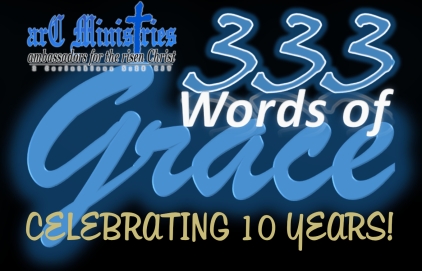Tuesday, May 7, 2024
“And the Gentiles shall come to thy light, and kings to the brightness of thy rising” (Isaiah 60:3 KJV).
What can today’s Scripture teach us about spiritual calligraphy?
Adam and Eve rebelled against their Creator in Genesis chapter 3. For roughly the next 2,000 years of human history, the peoples of the world also had access to the God of creation. Yet, they too chose sin and Satan: “And God saw that the wickedness of man was great in the earth, and that every imagination of the thoughts of his heart was only evil continually. And it repented the LORD that he had made man on the earth, and it grieved him at his heart. And the LORD said, I will destroy man whom I have created from the face of the earth; both man, and beast, and the creeping thing, and the fowls of the air; for it repenteth me that I have made them” (Genesis 6:5-7).
In chapters 6–8, the LORD God sent the Great Flood to destroy all people save eight—Noah, his wife, and their three sons and daughters-in-law. These survivors stepped off the Ark in chapter 9, with the nations descending from Noah’s sons being recorded in chapter 10. These are the Gentiles. By the time of Genesis chapter 11, the nations are going the way of Satan-worship again: “[1] And the whole earth was of one language, and of one speech. [2] And it came to pass, as they journeyed from the east, that they found a plain in the land of Shinar; and they dwelt there. [3] And they said one to another, Go to, let us make brick, and burn them thoroughly. And they had brick for stone, and slime had they for morter. [4] And they said, Go to, let us build us a city and a tower, whose top may reach unto heaven; and let us make us a name, lest we be scattered abroad upon the face of the whole earth.”
With post-Flood (after the Flood) mankind repeating his pre-Flood (before the Flood) sins, the LORD God intervenes yet again to ensure His purpose and plan in creation come to pass. He will raise up one man by the name of Abraham….

